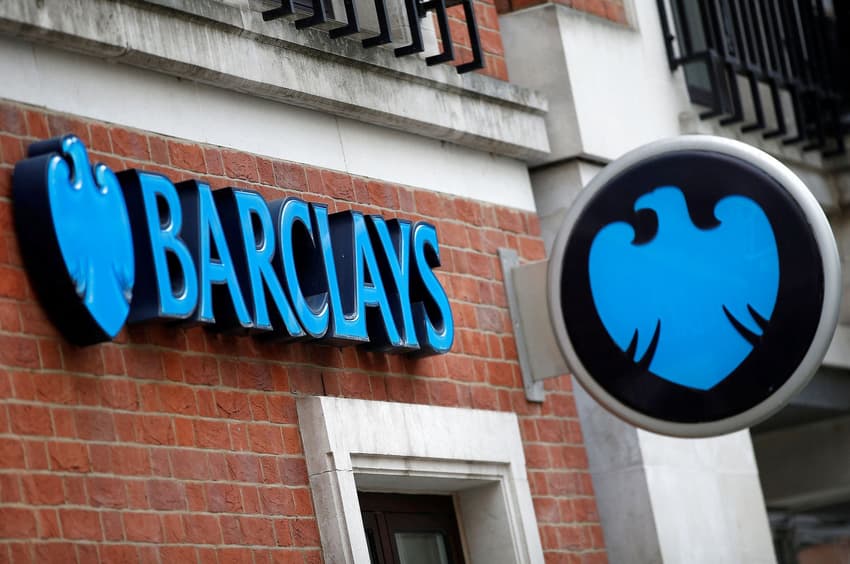Banking giant Barclays to close all accounts of Brits living in Denmark

UK nationals living in Denmark have begun to receive letters from their bank telling them that their accounts will be closed, in an apparent post-Brexit change.
Customers of Barclays Bank who are living in EU countries have been receiving letters telling them that their UK accounts will be closed by the end of the year. There appears not to be an option to register for a different account.
Numerous readers of The Local have contacted us to report receiving either letters or messages in their online banking telling them that their accounts would be closed because of their residency.
A Barclays spokesperson told The Local: “As a ring fenced bank, our Barclays UK products are designed for customers within the UK.
"We will no longer be offering services to personal current account or savings customers (excluding ISAs) within the European Economic Area. We are contacting impacted customers to give them advance notice of this decision and outline the next steps they need to take.”
Customers are being given six months to make alternative arrangements. The changes affect all personal current accounts or savings accounts, but do not affect ISAs, loans or mortgages.
During the Brexit transition period Barclays closed Barclaycard accounts of customers in the EU, but did not indicate any changes to standard bank accounts.
Around the same time, several other British high street banks began closing accounts of British customers who live in the EU.
UK nationals who live in Denmark sometimes maintain at least one UK bank account in addition to a Danish account. This is sometimes just for savings, while others use their accounts regularly to receive income such as pensions or income from rental property or – for remote workers – to receive income for work done in the UK.
Not having a UK bank account can make financial transactions in the UK more complicated or incur extra banking fees.
Since Brexit, the UK banking sector no longer has access to the ‘passporting’ system which allows banks to operate in multiple EU countries without having to apply for a separate banking licence for each country.
And it seems that many UK high street banks are deciding that the extra paperwork is not worth the hassle and are withdrawing completely from certain EU markets.
When British banks began withdrawing services from customers in the EU in 2020, a UK government spokesman told British newspaper The Times that “the provision of banking services is a commercial decision for firms based on a number of factors” so Brits in Denmark probably shouldn’t hold their breath for any help from that direction.
Comments
See Also
Customers of Barclays Bank who are living in EU countries have been receiving letters telling them that their UK accounts will be closed by the end of the year. There appears not to be an option to register for a different account.
Numerous readers of The Local have contacted us to report receiving either letters or messages in their online banking telling them that their accounts would be closed because of their residency.
A Barclays spokesperson told The Local: “As a ring fenced bank, our Barclays UK products are designed for customers within the UK.
"We will no longer be offering services to personal current account or savings customers (excluding ISAs) within the European Economic Area. We are contacting impacted customers to give them advance notice of this decision and outline the next steps they need to take.”
Customers are being given six months to make alternative arrangements. The changes affect all personal current accounts or savings accounts, but do not affect ISAs, loans or mortgages.
During the Brexit transition period Barclays closed Barclaycard accounts of customers in the EU, but did not indicate any changes to standard bank accounts.
Around the same time, several other British high street banks began closing accounts of British customers who live in the EU.
UK nationals who live in Denmark sometimes maintain at least one UK bank account in addition to a Danish account. This is sometimes just for savings, while others use their accounts regularly to receive income such as pensions or income from rental property or – for remote workers – to receive income for work done in the UK.
Not having a UK bank account can make financial transactions in the UK more complicated or incur extra banking fees.
Since Brexit, the UK banking sector no longer has access to the ‘passporting’ system which allows banks to operate in multiple EU countries without having to apply for a separate banking licence for each country.
And it seems that many UK high street banks are deciding that the extra paperwork is not worth the hassle and are withdrawing completely from certain EU markets.
When British banks began withdrawing services from customers in the EU in 2020, a UK government spokesman told British newspaper The Times that “the provision of banking services is a commercial decision for firms based on a number of factors” so Brits in Denmark probably shouldn’t hold their breath for any help from that direction.
Join the conversation in our comments section below. Share your own views and experience and if you have a question or suggestion for our journalists then email us at [email protected].
Please keep comments civil, constructive and on topic – and make sure to read our terms of use before getting involved.
Please log in here to leave a comment.